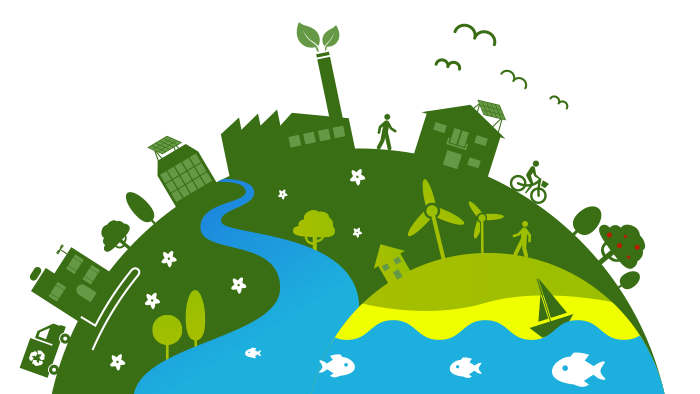Green economy is an economy that finds ways to reduce its pollutant emissions into the atmosphere .
It is a low carbon economy, which employs sustainable technology. In other words, the production system follows steps that meet fair, economically viable and environmentally appropriate processes.
In this way, the green economy guarantees a healthy future for new generations.
Low carbon means innovating production processes and creating technological solutions that result in less emission of polluting gases in the planet’s ozone layer.
According to Thomas Heller, environmental policy consultant and Nobel Prize winner:
“It is necessary to raise productivity to new levels, in order to generate more wealth, depending less on the environment. Only in this way is it possible to look at the economy and the green simultaneously”.
Cleaner Economy
The search for a cleaner economy has been raising awareness and public debate since 1970, when the greenhouse effect came under discussion.
In 1997, at the Kyoto conference on climate change, a protocol was adopted to adopt limits on emissions of polluting gases during the winter, mainly in rich countries. It became known as the Kyoto Protocol .
Thirty-nine countries have committed to limit their emissions during the period 2008-2012. The global reduction target would be 5.2%.
The objectives established in the protocol were below what was necessary to avoid future problems. A complete change was needed in the global industrial and energy system.
Thus, emissions trading was introduced in the protocol. In other words, poor countries, which develop projects (Emission Reduction Units or ERUs), to reduce their carbon emission quotas, can pass the balance on to rich countries to offset excess emissions and not change their energy sector.
In practice, countries or companies that manage to reduce their emissions by one ton of CO 2 , will earn a “carbon credit”. These are considered commodities and can be sold in the national and international financial markets.
In 2013, Rio Mais 20 started the United Nations Conference on Sustainable Development. The aim was to debate and how to reconcile development, quality of life and environmental preservation.
In this debate the idea of ”green economy” arises. The conference program points out themes for the transition to sustainable development, with the creation of goals, objectives and deadlines for the transition towards the green economy.
Sustainable development
Sustainable development is the set of processes aimed at meeting the needs of today’s societies, without compromising the needs of future generations.
It is development that does not exhaust productive resources for the future.
The high consumption and waste of raw materials has been destroying and depleting the Earth’s natural resources.
This model of economic development has been rethought and is gradually being replaced by another that takes into account the issue of the environment, natural resources and the solution of the planet’s social injustices.
The increase in industrialization and consumption means an increase in the consumption of energy, raw materials and, consequently, waste, thus resulting in greater pollution.
Tons of polluting gases are released into the atmosphere, resulting in the destruction of the ozone layer , the greenhouse effect, acid rain , climatic imbalances, etc.
The main ones are carbon dioxide, carbon monoxide, methane, nitrous oxide and nitrogen oxide.
However, pollution is a political and economic problem. Reducing it means making use of sustainable practices.
A basic point for the changes is to make use of clean energy, be it hydraulic, solar, wind, biomass etc., which would reduce the emission of polluting gases.
The reduction of deforestation, fires or forest fires, destined to the development of agricultural activities, is a key point for sustainable development.
Countries that produce food using large amounts of pesticides leave a planet and a poisoned population in return.
The world markets tend to prefer, more and more, products obtained in a sustainable way.

